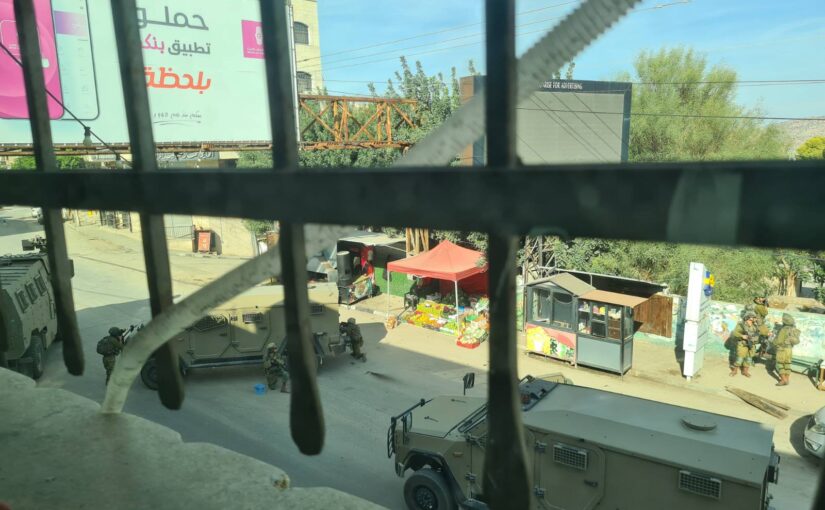Category: Press Releases
-
Killings and arrests in latest Tubas raid
Tubas, Palestine – December 9. Two more people were killed by a drone-launched missile in Tubas, in the northern West Bank. This brings the total number of Palestinians killed by the Israeli military in the West Bank since October 7th, to 810, including 169 children, with more than 6,450 injured. Being one of the bloodiest…
-
Fighting Until the Last Breath
October 26, 2024 | Tulkarem-West Bank | Diana Khwaelid What does it mean to bring an entire army battalion with huge military vehicles storming into a neighborhood, to besiege a whole apartment building, in search of a single Palestinian? This is a report of resilience and defiance in the face of the Israeli occupation. On…
-
Report from the Commission Against the Wall and Settlements
This report was generated by the Commission Against the Wall and Settlements, and was translated from Arabic to English for ISM. That translation is reproduced here with only minor formatting alterations. Agricultural Outposts: A Gateway towards Forced Displacement It is not possible to create a functional separation between the case of establishing colonial outposts, which…

